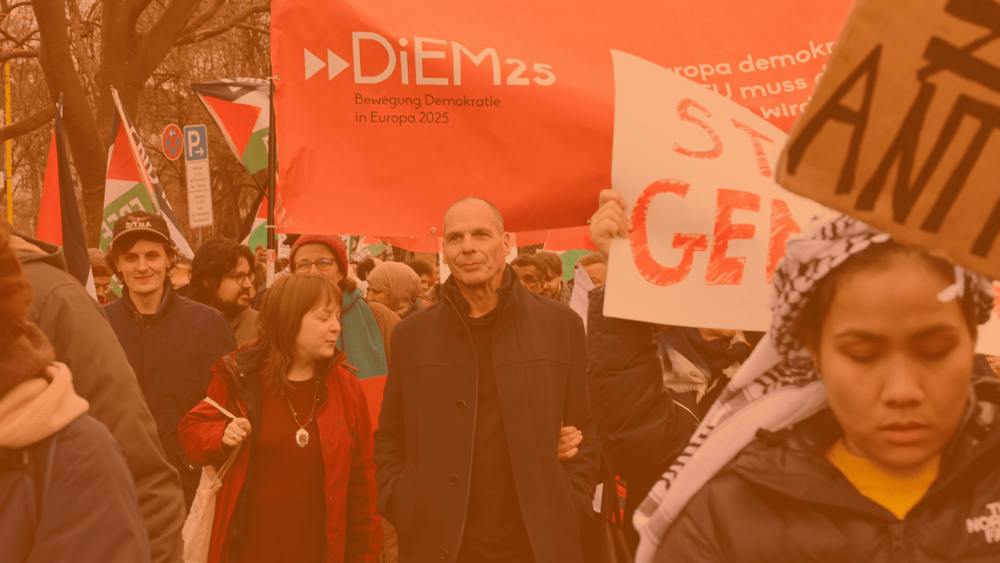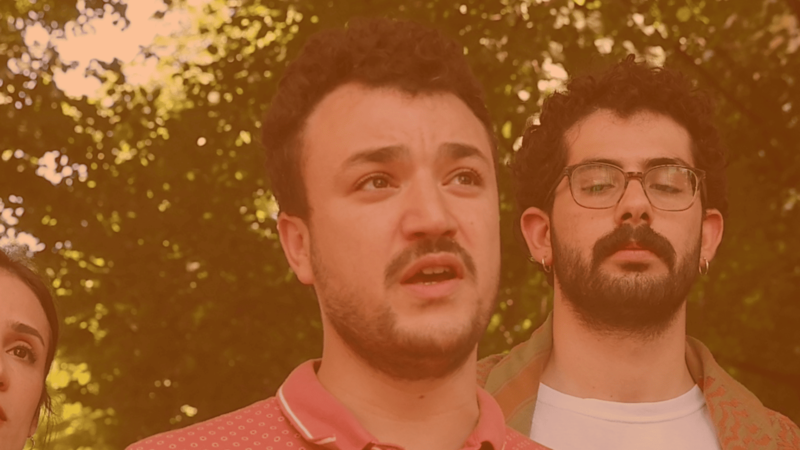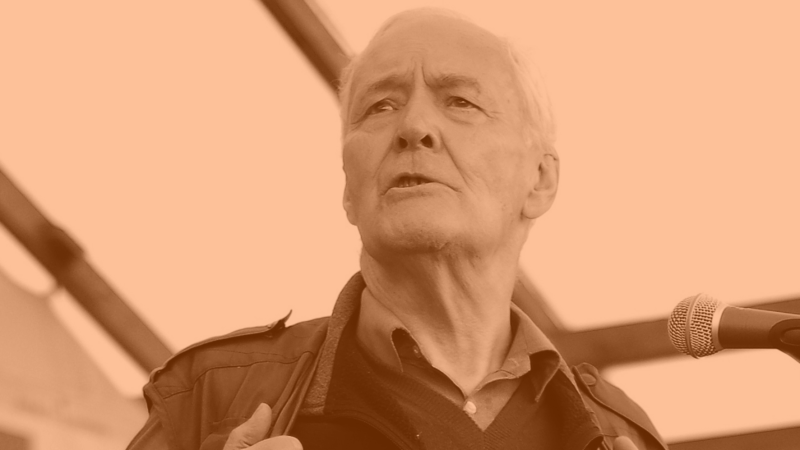In defence of fundamental rights and public liberties in Europe: A radically democratic plea from a legal perspective
We find ourselves at a crucial moment for the defence of democratic principles and fundamental rights in Europe. The recent actions by German authorities, such as the prohibition of the Palestine Congress, the denial of entry to DiEM25 co-founder Yanis Varoufakis, and the detention and expulsion of Dr. Ghassan Abu Sittah, are clear indications of a concerning decline in respect for human rights and public liberties within the European Union (EU).
In this plea, we aim to address these violations from a radically democratic and legal perspective, delving into European jurisprudential doctrine and relevant legislation, in order to urgently call for action in defence of democracy and fundamental rights in Europe.
Legal foundation of fundamental rights in the European Union
The legal framework protecting rights in the EU is solid and rooted in a series of top-tier legal instruments. Firstly, the Charter of Fundamental Rights of the European Union, proclaimed in 2000 and with binding force since the entry into force of the Lisbon Treaty in 2009, establishes a comprehensive set of civil, political, economic, social, and cultural rights that are applicable in all EU Member States. This Charter is grounded in the principles of human dignity, freedom, equality, and solidarity, and constitutes the fundamental pillar of rights protection in the European context.
Additionally, the European Convention on Human Rights (ECHR), adopted by the Council of Europe in 1950 and binding for EU Member States through their accession to the Lisbon Treaty, provides additional protection of fundamental rights on the continent. The European Court of Human Rights (ECtHR), established under the ECHR, is a key judicial body in the protection of human rights in Europe, issuing binding jurisprudence that influences decisions of national courts and policies of Member States.
Lastly, the Lisbon Treaty and the Treaty on European Union (TEU) establish respect for fundamental rights as one of the EU’s fundamental values, alongside democracy and the rule of law. These treaties confer competences to EU institutions to protect and promote fundamental rights within the scope of their activities, and establish monitoring and control mechanisms to ensure compliance with these obligations by Member States.
The prohibition of the Palestine Congress and the denial of entry to Yanis Varoufakis: Flagrant violations of fundamental rights
The recent prohibition of the Palestine Congress in Germany and the denial of entry to Yanis Varoufakis constitute flagrant violations of the fundamental rights enshrined in European legislation and ECtHR jurisprudence. Firstly, freedom of expression, enshrined in Article 10 of the ECHR and Article 11 of the Charter of Fundamental Rights of the EU, is a fundamental right that protects individuals’ ability to express and disseminate ideas without interference from the State.
The prohibition of the Palestine Congress and the denial of entry to Varoufakis constitute clear interference with this right, by impeding the free expression of opinions on a matter of public interest and international relevance.
Secondly, the right to peaceful assembly, protected by Article 11 of the ECHR and Article 12 of the Charter of Fundamental Rights of the EU, guarantees individuals’ right to assemble peacefully and associate with others for the protection of their common interests. The prohibition of the Palestine Congress represents a direct and flagrant violation of this right, by preventing the holding of a peaceful event and the association of individuals to address a matter of public interest.
Additionally, the denial of entry to Yanis Varoufakis in Germany constitutes a violation of the right to freedom of movement, recognized in Article 45 of the TEU and Article 21 of the Charter of Fundamental Rights of the EU. This right guarantees the free movement of persons within the Schengen area and prohibits any discrimination based on nationality. The denial of entry to Varoufakis and his exclusion from participating in political activities in Germany constitute a clear violation of this principle, undermining the integrity of the Schengen area and limiting the freedom of movement of European citizens.
ECtHR Jurisprudential Doctrine and Protection of Fundamental Rights in Europe
The jurisprudence of the ECtHR plays a fundamental role in the protection of fundamental rights in Europe, providing guidance on the interpretation and application of the ECHR in individual cases.
On numerous occasions, the ECtHR has established that restrictions on freedom of expression and freedom of assembly must be justified by compelling reasons, such as national security or the protection of the rights of others, and must be proportionate and necessary in a democratic society.
In the case of Lingens v. Austria, the ECtHR established that restrictions on freedom of expression must be interpreted restrictively and can only be justified in exceptional circumstances. Similarly, in the case of Ezelin v. France, the ECtHR held that restrictions on the right to assembly must be proportionate to the legitimate aim pursued and cannot go beyond what is strictly necessary in a democratic society.
Regarding the denial of entry to Yanis Varoufakis in Germany, the ECtHR has established on different occasions that restrictions on the right to freedom of movement must be justified by legitimate and proportionate reasons and must respect the principles of non-discrimination and proportionality. The ECtHR has ruled on several occasions that the expulsion of an individual from the territory of a Member State must be based on an individual assessment of their situation and cannot be based on stereotypes or prejudices.
Ethical and political implications of violations of fundamental rights in Europe
The recent violations of fundamental rights in Europe raise not only legal concerns but also significant ethical and political implications. Firstly, these actions reflect a worrying regression in respect for diversity of opinions and political tolerance in Europe. Democracy is founded on mutual respect and the ability to debate and dissent in a civilized manner, even on controversial issues. The prohibition of the Palestine Congress and the denial of entry to Yanis Varoufakis in Germany demonstrate an intolerance towards divergent opinions and an attempt to impose a uniform approach.
Secondly, these actions undermine the credibility of the EU as a defender of human rights and democracy on the international stage. The EU presents itself as a committed actor in promoting democratic values and fundamental rights worldwide. However, the prohibition of the Palestine Congress and the denial of entry to Yanis Varoufakis in Germany send a contradictory message and undermine the credibility of the European Union in the field of human rights and fundamental freedoms.
Additionally, these actions fuel fears of growing authoritarianism in Europe and jeopardize the rule of law and democracy on the continent. Respect for fundamental rights and public liberties is a fundamental pillar of democracy, and any erosion of these principles undermines the legitimacy and stability of democratic regimes.
Conclusions and recommendations: For a truly democratic and free Europe
In conclusion, the recent violations of fundamental rights in Europe are unacceptable and demand a strong response from civil society, European institutions, and Member States. It is essential that the fundamental rights of all individuals are respected and protected, regardless of their political opinions or beliefs. This requires a renewed commitment to democracy, the rule of law, and the fundamental values of the EU.
To address this situation, it is necessary to adopt a series of concrete measures. Firstly, it is imperative that EU Member States and European institutions fulfil their legal and ethical obligations regarding human rights and fundamental freedoms. This includes respecting ECtHR decisions and effectively implementing the Charter of Fundamental Rights of the EU in all areas of political and legal activity.
Additionally, civil society and human rights organizations must mobilize and denounce any violations of fundamental rights, pressuring authorities to fulfil their legal and ethical obligations. The defence of human rights and fundamental freedoms is the responsibility of everyone and requires collective and coordinated action to ensure their protection and promotion in Europe and beyond.
Only through unwavering respect for fundamental rights and democratic principles can we build a truly democratic, free, and just Europe for all citizens. It is time to act with determination and firmness in defence of democracy and human rights in Europe.
Do you want to be informed of DiEM25's actions? Sign up here















